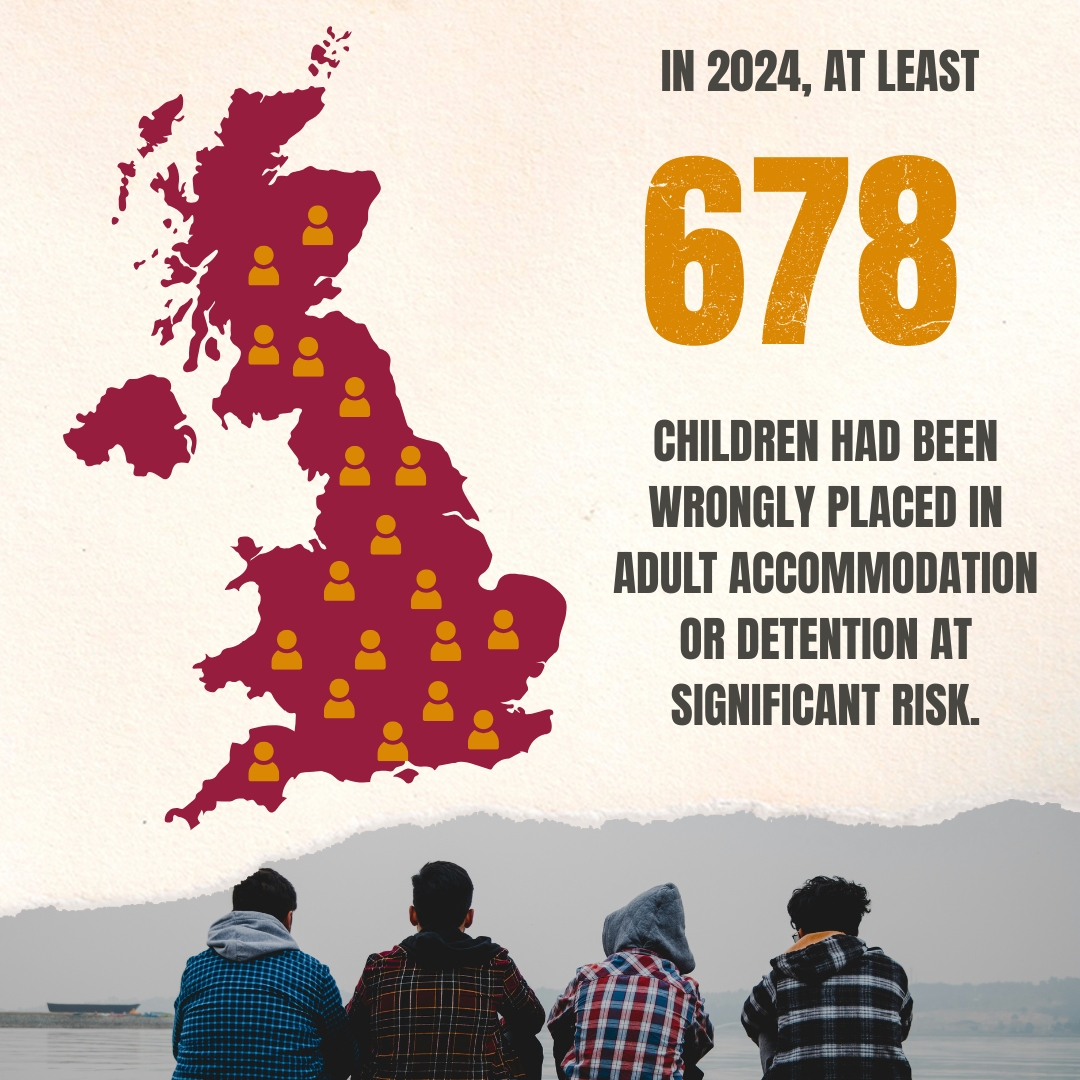Serious safeguarding scandal: new data shows that hundreds of child refugees continue to be wrongly treated as adults
Despite mounting evidence of the profound harm it causes, the Home Office continues its practice of wrongly assessing children who come to the UK alone to seek protection, as adults. For the third year in a row, the Helen Bamber Foundation’s data shows that hundreds of child refugees are continuing to be incorrectly treated as adults after a visual assessment of age at the border and placed with strangers in adult accommodation and even adult prisons.
For years now, we have collected data on this damaging practice, which the government has failed to do itself. Through Freedom of Information (FOI) Act requests, we found that in 2024:
-
90 local authorities in England and Scotland received 1,335 referrals to their children’s services department of young people who had been sent to adult accommodation/ detention but were claiming to be children.
-
Of the cases when a decision on age was made/age assessment concluded (1,221), 56% were found to be children - meaning that in that year at least 678 children had been wrongly placed in adult accommodation or detention at significant risk.

Many children from countries such as Afghanistan, Sudan and Eritrea are unable to show official identity documents, such as passports or birth certificates, because they have never had them, they’ve been destroyed, lost or taken, or the child has been forced to travel on false documentation. In thousands of cases, border officials will simply decide an individual’s age based on a cursory visual assessment of their ‘appearance and demeanour’. If they think they look significantly over 18, they will move them straight to adult accommodation/detention.
Our previous reports have shown that children as young as 14 have been forced to share rooms with unrelated adults, with no safeguards in place. Children wrongly treated as adults have also been charged with immigration offences under the Nationality and Borders Act, spending periods of time in custody with adults in adult prisons.
Deciding age based on appearance alone is self-evidently flawed and has been widely criticised internationally. Bizarrely, even the Home Office’s own guidance notes that “physical appearance is a notoriously unreliable basis for assessment of chronological age”. Earlier this year, the Home Office also admitted, in response to legal challenges brought by children who had been wrongly prosecuted as adults, that the existing policy leads to errors. Between March and June, it introduced an interim policy so that where an individual considered ‘significantly over 18’ but under 25, they should be referred for a further age assessment before a decision is made to prosecute them as an adult. We recommend that an ‘over 25’ threshold be used for all cases where an individual is claiming to be a child - this was Home Office policy from 2019 to 2021 and is commonly found in other areas where age needs to be decided (such as ‘Challenge 25’ for shops selling alcohol).
Change is urgently needed before many more children are harmed by this practice. The Home Office must acknowledge that this is a significant safeguarding crisis and take steps to ensure that border officials only dispute a child's claimed age in exceptional circumstances, and routinely notify local authorities whenever a potential child has been determined by them to be an adult. The Home Office also needs to publish its own full statistics on age disputes, showing the number of children who are taken into care from the adult asylum system, which would allow us to understand the full extent of this crisis. Children, who come to the UK alone to seek safety, have already experienced great trauma – the UK government must do all it can to treat them with dignity, not hostility.



